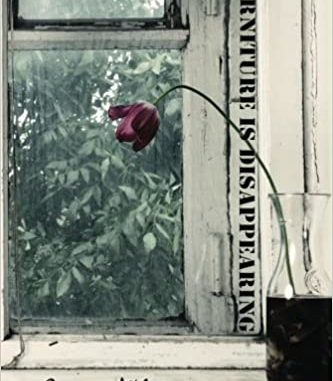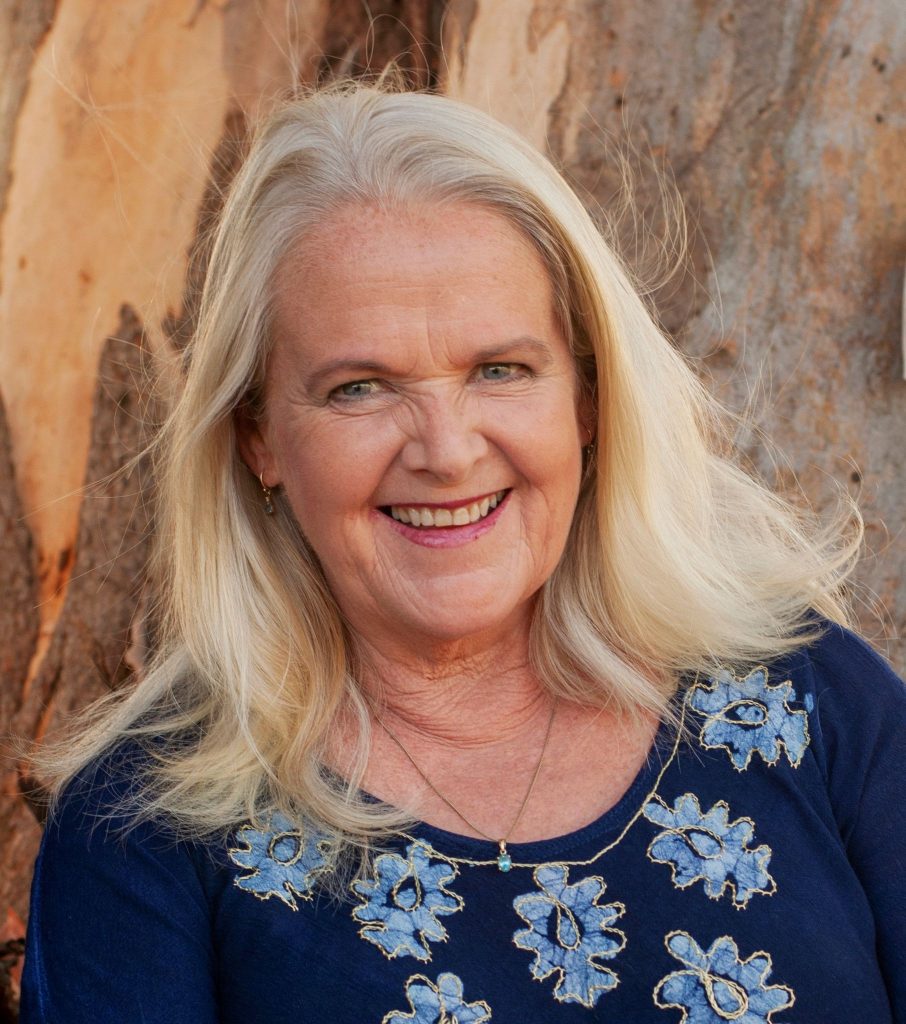
Interactive Press 2014
ISBN 978-1-922120-70-0
Roxanne Bodsworth
When living with the threat that the tactile experience of reading may be subsumed by the digital era, this book recalls the sensual experience. It feels good to hold, like handling suede or ancient vellum, and the image of the wine-dark tulip against the window looking onto an overgrown garden invites the reader in.
The poems are equally as sensual; looking through the window into the poet’s experience of sex, adventure, longing, relationships that begin, end, and where the “furniture is disappearing” as lives are packed up and removed. White, in sharing her experience with such beautiful poetry, engages the reader in the experience of her life.
The first poem in any collection, like the opening paragraph in a novel, is the most important for capturing the interest and enticing you to read on. ‘Guru’ does this:
People
on the street
seem to like
asking me questions.
Like the people on the street, we’re prepared to follow White’s directions into the rest of the book, and her engaging personality comes through each one. That personality is nice, likeable, open and trusting, with a child-like sense of play, playing with language and images. Which all can make you very angry, upset for her, when she comes up against the inevitable bastards like in ‘Crimson Encounter’. Sex that isn’t what it should be, instead is meaningless and messy, and non-consensual, leaving her debased, devalued. Paradoxically, White’s strongest poems are the ones that leave behind that child-like state and engage with the darker aspects of life.
And there is nothing child-like about her skill with language and imagery. These poems are the result of careful and disciplined honing of her craft, evident in ‘Love Poem for London’, arranged in rhyming couplets but with the rhyme in the assonance, giving it a soft, rounded sound that matches the emotion and the aesthetic of the memory. And the excellent pantoum of ‘Ardent Lovemaking’ where she also plays with a juxtaposition of the phrases that works to avoid the monotony of repetition while strengthening the connection between the quatrains. The erratic rather than regular rhythm adds to the topical chaos.
Some attempts haven’t worked quite so well. ‘Father’s Breath’ is another pantoum but it feels contrived and awkward. And ‘Sonnet for my Lover’ is cloying in its romanticism, though breaking away from the metrical requirements does effectively move it into contemporary modernism. Others such as ‘Friendship’ are just snapshots of her life, encounters, relationships, friendships. There’s a lot of sex, drinking, and drifting, and it does start to feel a bit voyeuristic in the reading.
I don’t know what this friendship
Is based on, maybe just
The drinking of Smirnoff
Into the early hours
And the promise
Of your skin.
But there are few enough collections where the poet hits the mark with every offering and here there are enough very good poems to make it worthwhile reading.
One of my favourites is ‘Where I grew up’ that begins:
The trees had their wings clipped,
lumbering amputees with leaves.
Her poem, ‘Mum’ about a mother’s degeneration into senility is aesthetically simple, pared back, but fear-filled and poignant:
Your thoughts like
scrambled egg:
I wonder where.
I wonder where the pieces
went?
The closing of a collection, for it be a satisfying experience holistically, is as important as the opening and White achieves this with ‘Furniture is disappearing’. With the furniture goes her optimism and this collection has been a rite of passage into adulthood. Despite the disappointment expressed in the last poem, readers can confidently, and optimistically, expect more poetry from White in the future that will reflect an increasing depth, maturity, and mastery of the craft.
***********************************************************************
Get your copy from Amazon here:
Reviewer Bio:

Roxanne Bodsworth is a poet, celebrant and farmer living on Bpangerang country, Victoria. Roxanne achieved her PhD at Victoria University in 2021 with a feminist reconstruction of Irish mythology. She received a commendation in the 2022 Melbourne Poets’ Union Prize and her poetry has been published in several journals under the pen-name of ‘Therese’, including The Incompleteness Book II, Lockdown Poetry, Poetrix, SideWAlk, Spindrift, Hobo, Tamba, and Offset. Her second verse novel, Unforgiven, was released in February this year. She is widely published in a range of genres, including reviews for Cordite and The Australasian Journal of Irish Studies.
Did you enjoy this article?
Sign up for my email newsletter to ensure you don’t miss a new article from The GW Review! Get my FREE 5-DAY email course on how to show, don’t tell in poetry, when you sign up today.
Want to submit to The GW Review?
The GW Review is an online literary journal seeking submissions of poetry, poetry book reviews, and music and poetry-themed feature articles. Send an email to the editor via contact@gemmawhite.com.au
Want to donate to The GW Review?
Your donations help pay the writers who submit their articles, book reviews, and poetry to this website.

Leave a Reply